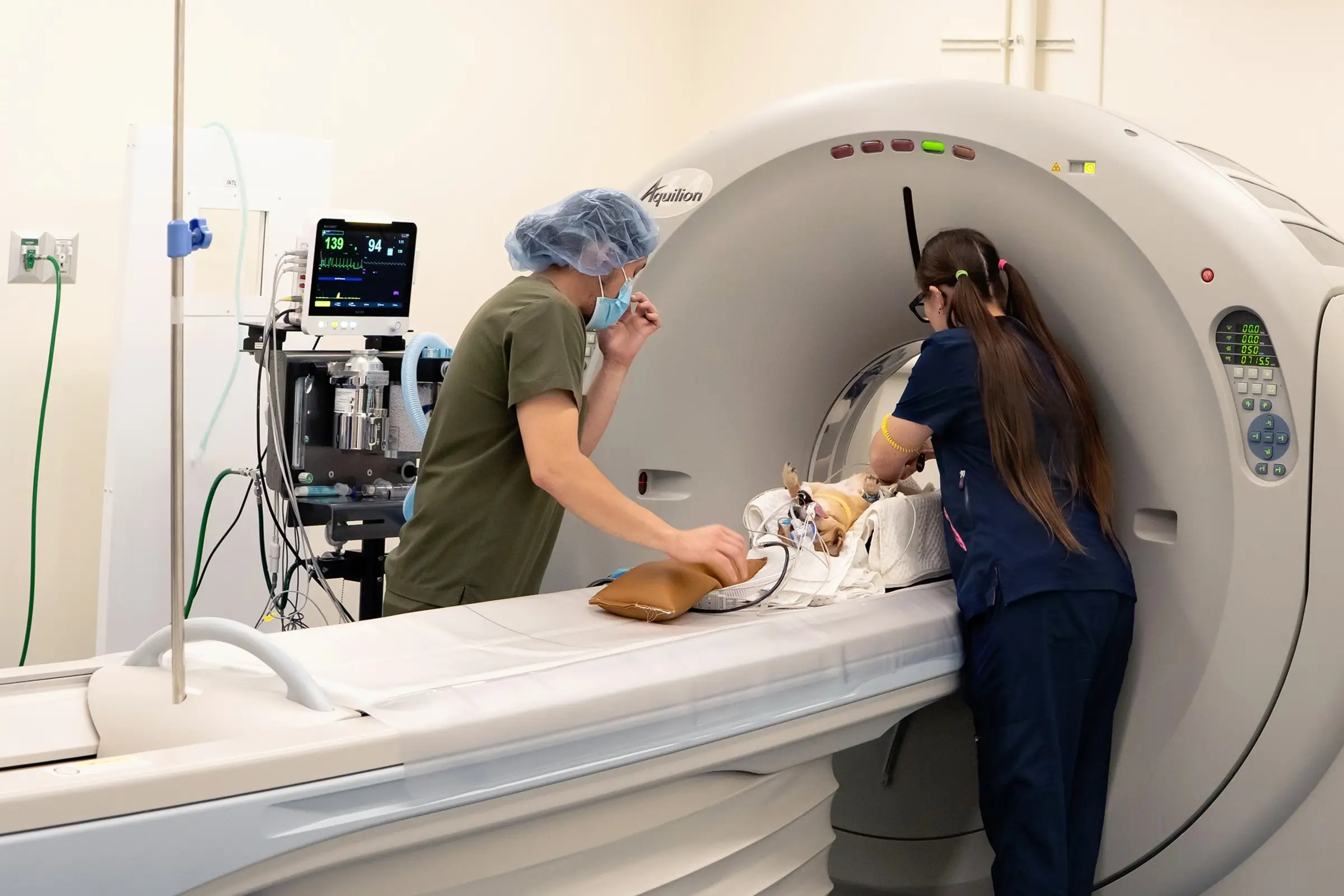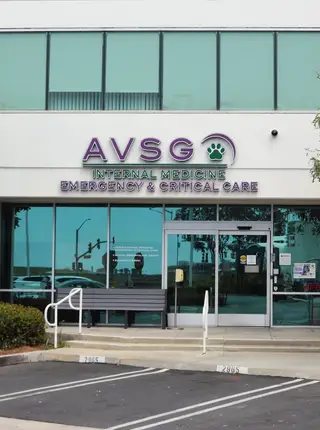When our pets aren’t feeling their best, it can be difficult to know what’s wrong. Unlike people, they can’t explain their symptoms or describe what they’re experiencing. That’s why modern veterinary hospitals rely on advanced diagnostic tools to uncover what’s happening beneath the surface. These technologies not only help veterinarians make accurate diagnoses, but they also guide treatment plans and improve outcomes for pets.
Below are some of the advanced diagnostics offered at AVSG IMERCC and how they can benefit your pet.
Digital X-Ray (Radiography)
X-rays are one of the most common tools used in veterinary medicine, but today’s digital technology has greatly improved image quality and speed. Unlike traditional film, digital X-rays allow veterinarians to view results almost instantly and enhance images for better detail. They are especially helpful in diagnosing broken bones, joint issues, swallowed foreign objects, and certain diseases affecting the chest or abdomen. And being captured digitally means that they can be shared with a board-certified veterinary radiologist if additional expertise is needed.
For pet owners, this means faster answers and less stress for both you and your pet.
Ultrasound Imaging
Ultrasound uses sound waves to create real-time images of internal organs. This non-invasive diagnostic tool is particularly useful for evaluating the heart, liver, kidneys, bladder, and reproductive organs. Because ultrasounds show movement, veterinarians can watch how organs function in real time. Examples include blood flow through the heart or urine moving through the bladder.
Ultrasound is also valuable in guiding procedures like biopsies, ensuring precision and safety when collecting tissue samples for testing.
Endoscopy
Endoscopy allows veterinarians to see inside the body using a flexible camera. Commonly performed on the digestive tract, endoscopy can help identify causes of vomiting, diarrhea, weight loss, or difficulty swallowing. It also allows for foreign object removal without the need for surgery in certain cases.
Because endoscopy is minimally invasive (no large incision), pets often recover more quickly compared to traditional exploratory surgery.

CT Scans (Computed Tomography)
CT scans use advanced imaging to create highly detailed cross-sectional views of the body. These scans provide far more detail than X-rays and are especially helpful for diagnosing complex issues involving the head, spine, chest, or joints. For example, CT scans can reveal nasal tumors, spinal cord compression, or small fractures that might not be visible with other imaging. Though it requires anesthesia, the insights gained from a CT scan can be lifesaving when precision is needed.
Laboratory Diagnostics
In addition to imaging, in-house laboratory testing plays a major role in advanced veterinary diagnostics. Bloodwork, urinalysis, cytology (cell evaluation), and cultures allow veterinarians to detect infections, monitor organ function, and screen for diseases such as diabetes, thyroid imbalance, or cancer.
Rapid in-house results mean veterinarians can often start treatment during the same visit, improving outcomes for pets in urgent situations.
Why Advanced Diagnostics Matter
Advanced diagnostics are more than just high-tech tools. They’re a way to provide the best possible care for pets. They allow veterinarians to detect problems earlier, tailor treatment plans to each pet’s needs, and reduce the need for invasive procedures. For pet owners, this means peace of mind knowing that your veterinary team has the resources to find answers quickly and accurately.
Final Thoughts
As veterinary medicine continues to advance, diagnostic capabilities once reserved for human hospitals are now available to pets. Whether your furry family member needs an ultrasound, an endoscopy, or a comprehensive lab panel, these tools are designed to ensure your pet receives the highest standard of care.
If your veterinarian recommends an advanced diagnostic test, it’s because it offers valuable insight into your pet’s health. By saying yes, you’re giving your pet the best chance at early detection, effective treatment, and a healthier, happier life.
Our Commitment to You
At AVSG IMERCC, our internal medicine and 24/7 emergency and critical care departments are fully equipped with state-of-the-art diagnostic and monitoring technologies, enabling timely interventions and continuous critical care management. If you have any questions about our services, call us at 949-653-9300.
The information contained in the article is for informational purposes only and is not intended to take the place of the advice of a veterinarian.




